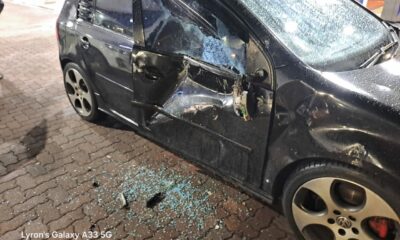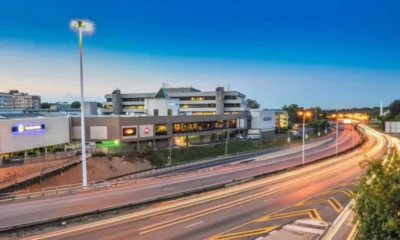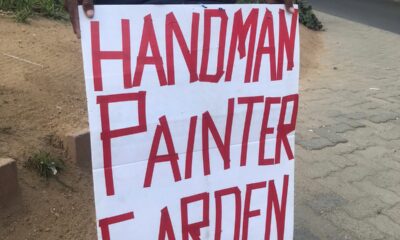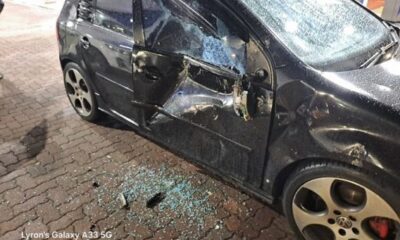Best of Johannesburg
Why South African Communities Are Taking Safety Into Their Own Hands in 2025

When ordinary towns become guardians of safety
In many South African communities, 2025 feels like a turning point. A growing number of residents no longer see the formal system as their first line of defence. Instead, they are banding together, sometimes peacefully, sometimes dangerously, to safeguard their neighbourhoods themselves. This is the story of why community justice is rising and what it says about trust, fear, and belonging in modern South Africa.
Why people feel they have no choice
Recent surveys reveal alarming drops in public confidence in the police. Only about one in five South Africans now expresses trust in the South African Police Service, marking the lowest level in 27 years. On the back of this erosion of faith, many feel the justice system fails to deliver real protection or timely justice.
The most recent national household survey confirms the scale of the problem. More than 1.1 million households experienced housebreaking or burglary in the last year, affecting around 5.7 percent of all households in the country.
When people say they no longer trust the police, it reflects lived experience. Many feel the response to crime is slow or ineffective. Some believe criminals get arrested only to be released soon after. Others worry that reporting crimes is pointless because cases drag on or vanish without resolution. The result is a mix of anger, fear, and deep frustration.
Communities step up: From watches to vigilante mobs
Faced with rising risks, some communities have taken safety into their own hands. In certain areas, neighbourhood watches and community policing forums offer a more immediate, visible presence. Residents volunteer, patrol the streets, share information, and keep their own eyes open at night. Such groups aim to protect shared spaces and discourage criminals, a grassroots attempt to fill a void left by under-resourced formal policing. This is especially common in urban areas like Johannesburg and surrounding neighbourhoods.
In other places, the shift has gone beyond community policing. Some groups have turned to more aggressive methods, capturing and punishing suspected criminals without recourse to courts. What started as a bid for protection has sometimes turned into extralegal justice or outright vigilantism. Reports from 2025 show that mob justice and revenge attacks have escalated in certain western and northern provinces following high-profile crime incidents.
That shift from organised community patrols to mob rule underscores a tragic reality. When formal institutions fail repeatedly, desperation often leads to dangerous shortcuts.
What motivates community justice
There are many layers behind this trend
• Lack of police visibility. Many communities say patrols are rare or absent, especially at night, creating pockets where criminals operate freely.
• Feeling unprotected. Rising robberies, violent crime, and burglaries deepen the belief that residents must defend themselves.
• Desire for local control. Community-led structures allow people to protect each other, share information, and create their own sense of order.
• Systemic distrust. Years of perceived corruption, weak investigations, and stalled court cases have eroded confidence in the formal justice system.
• Community trauma. High-crime environments leave emotional scars. When people feel unheard or helpless, intense anger can fuel extralegal action.
A fragile balance: hope, risk, and unintended harm
Community police partnerships sometimes work. When organised properly, neighbourhood watches and community policing forums can discourage crime and build trust inside communities. National policing policy now emphasises collaboration between communities and law enforcement, urging municipalities and civil society to work together.
But that approach has limits. The rise of mob justice carries real dangers. Innocent people can be wrongly accused. Human rights may be violated. Communities risk slipping into cycles of violence. These acts bypass due process and undermine the idea of justice under law.
Moreover, extra legal action treats symptoms of crime, not root causes. It fails to address underlying factors like poverty, inequality, or lack of opportunity, all of which fuel crime over time.
Where things stand in 2025, and what could change
There are early signs that civil society and government recognise these challenges. National safety strategies highlight the need for robust community policing, improved resources for law enforcement, and modernised emergency systems in high-crime zones.
Researchers also call for strengthened civilian oversight of community policing forums to ensure transparency and prevent abuse. Studies emphasise that success depends on community trust, accountability, and cooperation, not force.
If these reforms succeed, community initiatives might regain legitimacy and contribute to long-term safety. But that future depends on rebuilding faith in institutions and balancing local action with respect for rights.
What this means for you and your neighbours
For Joburg residents and communities across South Africa, the message is clear. Safety cannot be an afterthought. When trust in formal policing fades, people feel forced to step in. But community justice is not a replacement for the law. It is a symptom of a justice system in crisis.
If you live in a neighbourhood where crime is real and fear is high, consider supporting or joining a legitimate neighbourhood watch or community policing forum. But always hold such initiatives accountable. Demand transparency. Protect human rights. Push for long-term reforms, because safety built on fear is fragile.
Communities deserve institutions they can trust. Until those institutions deliver consistently, many will continue to build their own.
Also read: Outrage Fatigue in South Africa: The Hidden Burnout Behind Our Constant Crisis Cycle
Follow Joburg ETC on Facebook, Twitter, TikT
For more News in Johannesburg, visit joburgetc.com
Featured Image: iStock


























